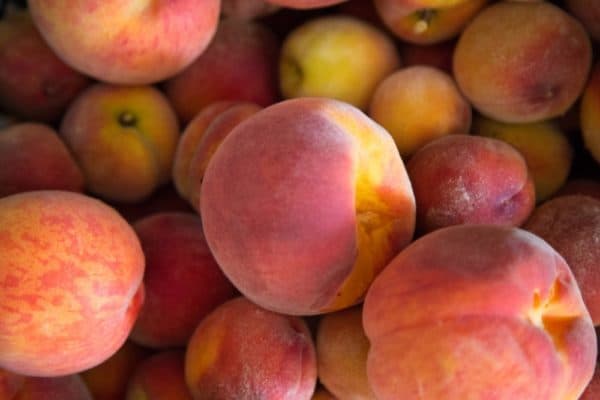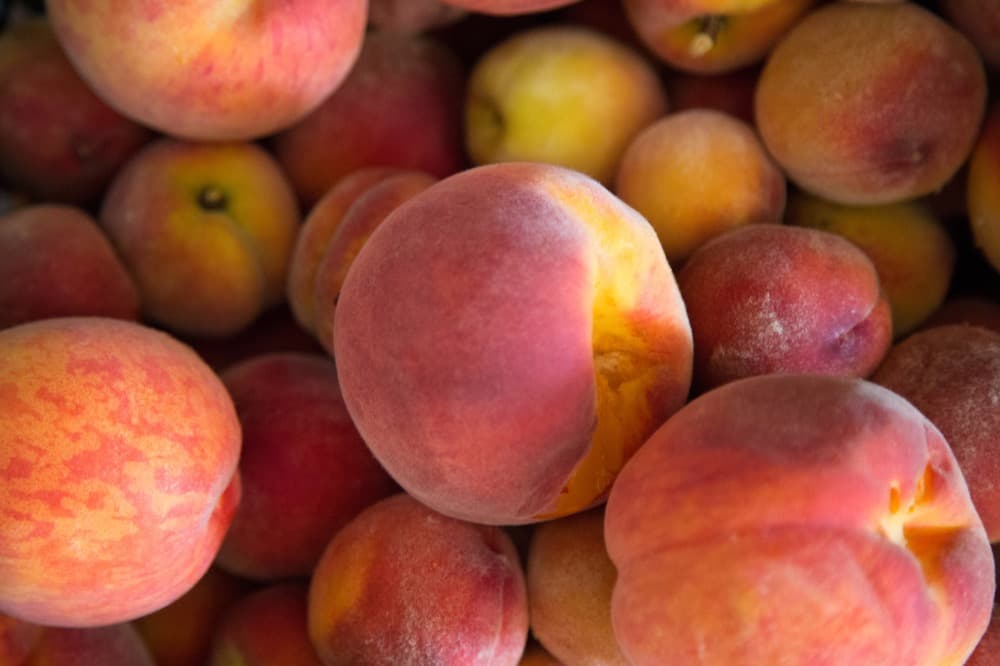
The owner of High Country Orchards and Vineyards says in a blind taste test she can tell the difference between a Palisade peach and some ol' fuzzy fruit from elsewhere in the state or country.
"They're sweeter, juicier and larger than other peaches," Theresa High said.
But for those who aren't peach connoisseurs, being sure you're really getting a peach from Palisade might be slightly more difficult. The same is true to a lesser extent for Pueblo chile and Rocky Ford cantaloupes.
Peaches are a $23.8 million business in Colorado, according to the U.S. Department of Agriculture.
More than half of the state's peaches are grown on the Western Slope. Each farmer sells individually to stores or other customers, and there's no organization established to certify Palisade peaches.
SEE ALSO: In Colorado, peach season comes with a 9/11 conspiracy theory
High sells more than 1 million peaches a year, she said. Without visiting an orchard on the Western Slope, the only way to be sure you're getting a Palisade peach is to go to a Whole Foods store in the Rocky Mountain region.
She sells directly to the grocery chain and can't say whether other farmers in Palisade are selling to other grocers.
"We all have our own individual growing methods and marketing plans," she said. "It would be really nice to have one group, but I don't see that happening."
Last year, farmers in Pueblo started the Pueblo Chile Growers Association to promote and market chile grown in southern Colorado. Almost 165 of Colorado's 333 acres of chile are in Pueblo County, according to the USDA.
"The easiest way to be sure you're getting Pueblo chile is to drive down to Pueblo," the association's president Dominic DiSanti said. Short of that, there's no certification for roadside vendors who are selling Pueblo chile.
"If it's coming from a non-descript burlap sack, it probably didn't come from Pueblo," DiSanti said. "Grocery stores do a pretty good job of displaying where they got their chile."
Farmers in Pueblo are competing with Hatch chile grown in Hatch, New Mexico. DiSanti doesn't want to be a "Hatch basher," but those peppers "can't compete with the freshness and taste you get in Pueblo."
Cantaloupe growers in Rocky Ford are fighting for sales with farmers in California and Arizona, said Michael Hirakata, president of The Rocky Ford Growers Association.
The association was formed in 2013 and is serious about protecting the Rocky Ford brand.
Last year, $2.8 million worth of cantaloupe were sold in Colorado, according to the USDA. About 360 of the state's 438 cantaloupe acres are in Otero County — where Rocky Ford is located.
Farmers in Rocky Ford print out "a little piece of paper" for cantaloupe vendors listing when and where the melons were purchased. The group also has stickers on their melons that say "Rocky Ford Growers Association," Hirakata said.
"I've been eating Rocky Ford cantaloupe my whole life. I won't eat a cantaloupe from California," he said.
Fruit frauds and chile cheats aren't a huge issue, said Wendy White. White manages the state Colorado Proud program to promote agriculture products grown, raised and processed in Colorado.
Farmer and companies can apply online to be in the Colorado Proud program. Once the state verifies they're producing a product or crop in Colorado they can use the "Colorado Proud" stickers, labels and marketing materials.
After companies and farmers are in the program, they're on the honor system, White said. "The biggest way to know if something is from Colorado is to ask."
Subscribe to Denverite’s newsletter here. Business & data reporter Adrian D. Garcia can be reached via email at [email protected] or twitter.com/adriandgarcia.












